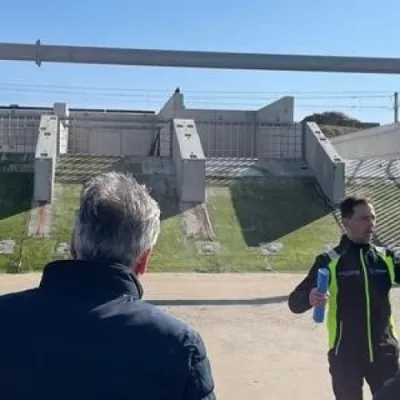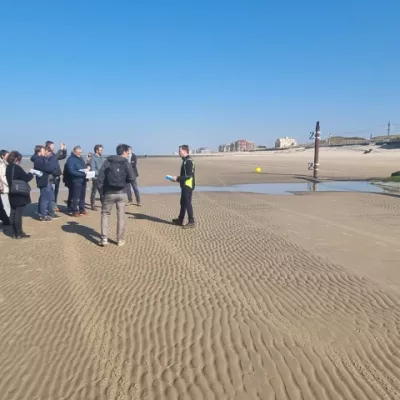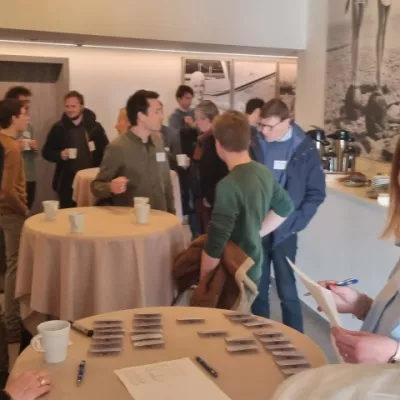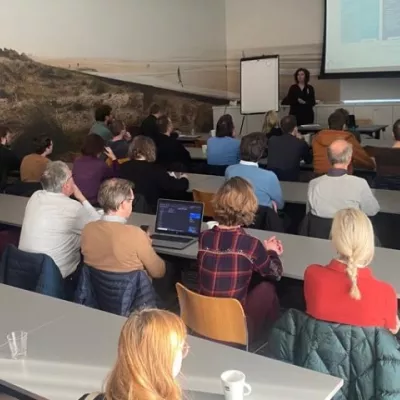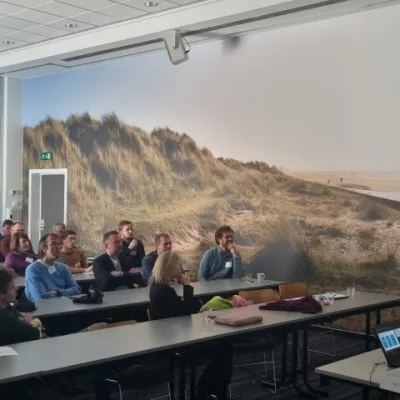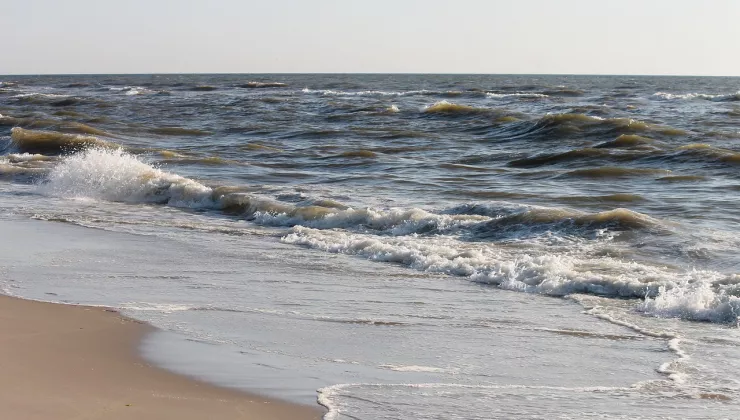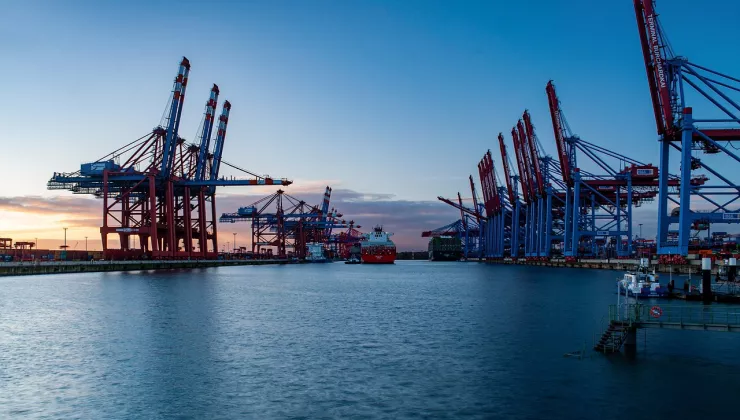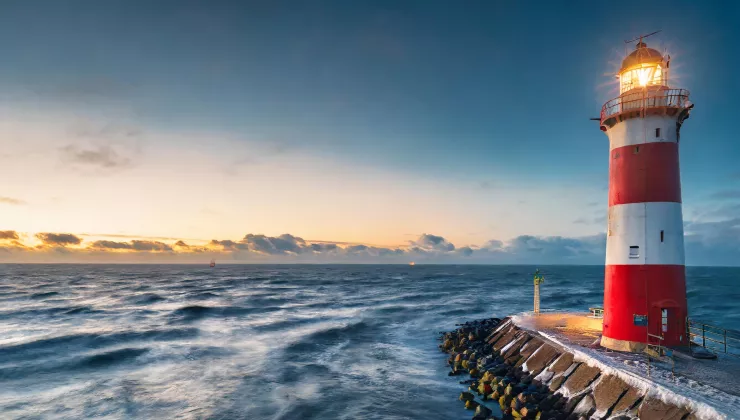Looking back on our Blue Session on coastal protection infrastructure
On Wednesday 9 March, Blue Cluster organised its first Blue Session of 2022. The central topic was coastal protection infrastructure. There was wide interest in the event, which had more than 30 participants. A report of this successful Blue Session can be found below.
Blue Cluster projects
After a brief introduction by Blue Cluster, this Blue Session started with a presentation of the (interim) results of 2 of our projects categorised previously under soft coastal protection: DataBeach and Coastbusters Bivalve reefs (and biomaterials)
- DataBeach was completed last year and aimed, among other things, at modelling beach erosion through machine learning algorithms. Within that context, DataBeach’s final report was discussed in more detail.
- Coastbusters Bivalve reefs (and biomaterials) is still ongoing and is, among other things, focused on innovative monitoring techniques to map mussel lines by means of AUVs and SUVs, for example. These techniques make it possible to visualise the reef and seabed structure development and to analyse the evolution of ecosystem services.
Coastal ports
Afterwards, Peter Van Besien, director of Coastal Infrastructure at the Agency for Maritime Services and Coast, explained the future challenges and opportunities regarding coastal ports, the failure behaviour and the testing of existing structures.
The research embankment at Raversijde as part of the Living Lab Raversijde will be used in the search for management measures for future coastal protection. The research embankment will be part of the FWO project, which will investigate the influence of infragravity waves during storms.
Across borders
In addition, 2 pilot projects from the European Interreg 2 Seas project SARCC were explained. These were the eco-concrete blocks from Cornwall (United Kingdom) and the redesign of the De Spuikom in Vlissingen (the Netherlands) as green-blue infrastructure. Finally, some results of the Prins Hendrik sand project in Texel (the Netherlands) were presented.
More info
Do you have any general questions, comments or suggestions regarding our Blue Session on Coastal Protection Infrastructure? Please contact Kristien Veys.
